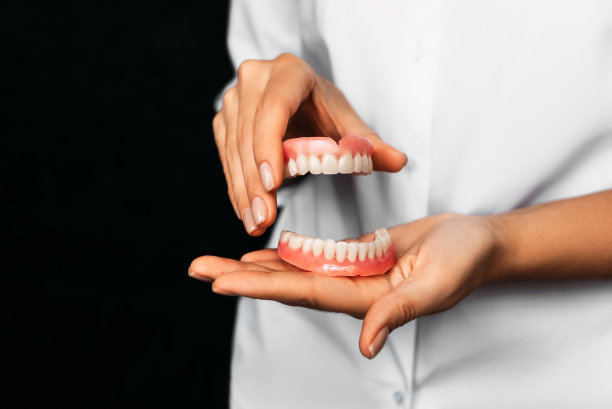Summary: Dental fillings are a common procedure that helps restore teeth affected by cavities or damage. However, certain essential precautions before and after the treatment can significantly impact oral health and comfort. This article explores the critical steps to take both prior to receiving a dental filling and after the procedure is completed. By understanding the importance of preparation, making informed choices, following aftercare instructions, and maintaining regular dental visits, patients can ensure their dental filling remains effective and their overall oral health is safeguarded. Through this comprehensive approach, individuals can promote healing and minimize discomfort, leading to a more positive dental experience.
1. Importance of Pre-Treatment Preparation

Before undergoing a dental filling, it is crucial to prepare adequately for the appointment. Discussing your medical history with your dentist is essential, particularly regarding allergies, anxiety towards dental procedures, or medication that may affect the treatment. This information can help the dentist tailor the process to your needs, ensuring a more comfortable experience.
Additionally, arriving at the appointment with an understanding of the procedure can alleviate anxiety. Patients should ask the dentist about the materials used for filling, the length of the procedure, and any potential side effects. Being informed can empower patients, making them feel more in control during the visit.
Lastly, scheduling your appointment at a time when you can relax after the procedure is recommended. Dental fillings may result in numbness from anesthesia, making it difficult to eat or drink immediately afterward. Planning for a quiet afternoon can enable patients to recover comfortably post-treatment.
2. Making Informed Choices for Filling Materials
When considering dental fillings, the choice of materials plays a significant role in the outcome. Patients must be aware of the different options, which commonly include amalgam, composite resin, and porcelain. Understanding the advantages and disadvantages of each material can help you make an informed decision based on your dental needs and aesthetic preferences.
For example, amalgam fillings are durable and cost-effective, making them suitable for back teeth where pressure from chewing is significant. Conversely, composite resins provide a more natural appearance and bond well with the tooth structure, making them an excellent choice for visible areas. Consulting with your dentist about which material suits best for your situation can lead to a satisfactory outcome.
Moreover, discussing the longevity and maintenance of the chosen filling material is essential. Some materials may require more upkeep or replacements over time. By understanding what to expect, you can plan for your dental health forecast and avoid unexpected issues down the road.
3. Following Aftercare Instructions for Recovery
After receiving a dental filling, adhering to your dentists aftercare instructions is paramount for optimal recovery and comfort. Immediately following the procedure, avoid hard or sticky foods that could dislodge the filling and maintain a soft diet for the next 24 hours. This allows the filling to set properly without being subjected to undue pressure.
Additionally, it is essential to practice good oral hygiene after getting a filling. Brush gently around the filling site without impacting the material, and refrain from flossing the treated area until your dentist advises its safe. Keeping the area clean will help prevent infection and promote recovery.
If you experience persistent discomfort or pain in the days following the filling, reach out to your dentist. Inform them of any unusual sensations, as this could indicate that the filling requires adjustment. By addressing any inconsistencies promptly, you can ensure long-lasting comfort and functionality of the filling.
4. Scheduling Regular Dental Checkups
To maintain oral health following a dental filling, scheduling regular dental checkups is essential. Dentists can monitor the condition of your filling and surrounding teeth, catching any potential issues early on. These preventative checkups can significantly reduce the risk of further dental problems, ensuring your mouth remains healthy.
Regular cleanings performed by dental professionals can remove plaque and tartar buildup, preventing new cavities from forming. By keeping up with these appointments, you are taking proactive steps toward safeguarding your dental health.
Moreover, checkups provide an opportunity to discuss any concerns with your dentist. Whether issues stem from sensitivity, potential cosmetic improvements, or general oral hygiene advice, open communication can ensure that your dental experience remains positive and worthwhile.
Summary:
In conclusion, ensuring optimal oral health following a dental filling requires careful preparation, informed decision-making regarding filling materials, diligent adherence to aftercare instructions, and scheduling regular checkups. By following these essential precautions, patients can not only promote their comfort but also enhance the longevity of their dental work.
This article is compiled by Vickong Dental and the content is for reference only.
Vickong Dental
Vickong Dental is a large medical group established in Hong Kong in 2008 by professors from well-known medical universities in Guangdong and Hong Kong, as well as medical doctors from key national '985' universities (including Master's supervisors and senior professors). The chain of branches brings together expert dentists with PhDs and Master's degrees from Hong Kong and Mainland China, committed to providing high-quality dental treatment.
"Vickong Dental Practices the University Motto of 'Healing and Serving Society,' with a Stable Operation for Sixteen Years. It Has Been honored with Hong Kong Enterprise Leaders's Choice,' and is a Global Trusted Implant Center for the Nobel Implant System. Recommended by Hong Kong Metro Broadcast and Guangdong Television, it Serves Customers from Over Thirty Countries and Regions, Gaining the Trust and Favor of Citizens from the Guangdong-Hong Kong-Macau Greater Bay Area and Surrounding Cities.

Thousands of customers' unanimous praise
The most recognized and highly recommended dental service by customers in the Guangdong-Hong Kong-Macau Greater Bay Area
We Ensure You Receive Detailed Care and Attention Here
Hong Kong standards, Shenzhen prices, Your Trusted English-speaking dentists

Vickong Dental Medical-Grade Instrument Disinfection Process
Vickong Dental Medical-Grade Instrument Disinfection Process

Vickong Dental Chain: A Warm and Comfortable Environment for Treatment






Appointment Hours

Q&A
Why choose Vickong Dental?
Vickong Dental practices the university motto 「Medicine to Benefit Society」, with each branch bringing together highly qualified dentists with doctoral and master’s degrees from Hong Kong and the Mainland, and has maintained seventeen years of steady operation。Recipient of 「2024 Hong Kong Enterprise Leaders Brand」, 「2025 Hong Kong Enterprise Leaders Brand」, a Nobel Biocare Global Trusted Implant Center, and a brand recommended by Metro Radio Hong Kong and Guangdong TV。
To date, we have served customers from more than thirty countries and regions,earning exceptionally high word-of-mouth recognition and trusted recommendations from residents across the Guangdong-Hong Kong-Macao Greater Bay Area and surrounding cities
We have eight major branches in Zhuhai、Shenzhen,and a consultation and service assurance center in Hong Kong,so you can book a free consultation at any time for any questions,which is very reassuring.
If I do not accept the quotation after the CT scan, will I be charged??
No! As long as the actual treatment has not started, you will not be charged any fees.
Will there be any additional charges during the treatment process?
No, there won’t be any additional charges. Before treatment begins, we will clearly explain the treatment plan and its corresponding fees. Only after the patient agrees and signs the consent form will we proceed with the dental service.
Can I pay in Hong Kong dollars?
Yes. Vickong Dental accepts payment in Hong Kong dollars. The amount will be converted based on the exchange rate of the day, and the applicable rate will be clearly communicated to you in advance.
Can I reschedule my appointment at any time?
Yes. Please contact us via **WeChat** or **WhatsApp** as early as possible, providing your original appointment time and details, along with your preferred new date and time slot for rescheduling.













